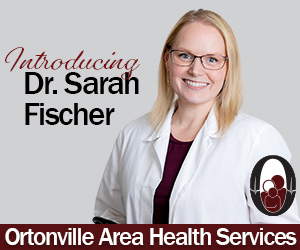
 Janet and Arvid Liebe of Milbank just returned from their most recent mission trip to Zimbabwe. It is part of an ongoing relationship the couple has fostered for over nine years. Most recently, their mission has been to complete a compound in Mutambara including a new six-bedroom guest house. “The compound is nearly 2,500 acres of predominantly mountainside grazing land,” explained Arvid. Within the compound are 300 to 400 acres of farmland, a 100-bed hospital, an elementary and secondary school, and a small guest house.
Janet and Arvid Liebe of Milbank just returned from their most recent mission trip to Zimbabwe. It is part of an ongoing relationship the couple has fostered for over nine years. Most recently, their mission has been to complete a compound in Mutambara including a new six-bedroom guest house. “The compound is nearly 2,500 acres of predominantly mountainside grazing land,” explained Arvid. Within the compound are 300 to 400 acres of farmland, a 100-bed hospital, an elementary and secondary school, and a small guest house.
During their stay, the Liebes helped to select construction materials – flooring, plumbing fixtures, lights, and roofing. “The construction is going well,” Janet said, “The plan is for the guest house to be completed by February 2017.” “Each time we go, we identify their greatest needs. Then, we work to meet those needs,” Arvid said. “There is so much to do, so we focus on top priority at that time.”
How did the Liebes become involved in a project halfway around the globe? According to Arvid, years ago, Dr. Lowell Gess, an ophthalmologist from Alexandria, Minnesota, enlisted help from area United Methodist churches to set up an eye clinic in Sierra Leone in West Africa. Parishioners from the Milbank area, including the Liebes, took part in his project. “In 2007, we were in Sierra Leone and Dr. Gess asked us to go to Zimbabwe to help establish eye care there.
The first year they built the eye clinic. Temporary quarters for missionaries and workers were built the second year and finally, a permanent building was erected. Now, work teams from around the world provide aid.
Arvid’s main role recently has been working directly with the architect and building contractor on the new guest house. “They do things totally different than we do and have a different way of thinking. It’s been a challenge, but there’s always learning going on for both of us,” Arvid said. He went on to explain their building plans consist of just a floor plan. “They don’t think about the details such as where the electrical and plumbing will go, which way the doors will open, where closets and windows will be installed, and how the cupboards and furniture will be situated.”
 The guest house, as with most homes in the area, are made from bricks. The bricks are laid using a half-brick wall and a whole-brick wall. For a half-brick wall they lay them lengthwise. A whole-brick wall is laid crossways at twice the width. The outside walls are whole-brick walls and the inside ones are half-brick walls. They plaster both sides of the walls to seal them. The walls don’t need to be insulated because the temperatures never get below freezing.
The guest house, as with most homes in the area, are made from bricks. The bricks are laid using a half-brick wall and a whole-brick wall. For a half-brick wall they lay them lengthwise. A whole-brick wall is laid crossways at twice the width. The outside walls are whole-brick walls and the inside ones are half-brick walls. They plaster both sides of the walls to seal them. The walls don’t need to be insulated because the temperatures never get below freezing.
The Liebes and other mission workers from the Milbank area have spent years building a relationship with the management in Zimbabwe and through the process have become more effective. “It took four or five years to build relationships and for them to trust us when we said we would come back,” Arvid said. “A lot of groups say they will come back, but do not follow through. We gained their trust and formed lifelong relationships because we do what we say we will do. Now they welcome us ‘home’. They are gracious and thankful.”
Pastor Thom Bowsher and his children, Madi and Wesley, spent nearly 10 days last summer planning the final stages of the guest house. Thom spent his time helping Arvid and the leaders and contractors to iron out the details of the guest house plans. One Sunday, he was also asked to preach. “I didn’t know ahead of time, so I had to spend time preparing a sermon,” Pastor Thom explained. “That was so different, because I had to be cautious about relating with a different culture. Plus, I had to prepare without my books or the internet. I was shocked at how much extra time that took.”
Pastor Thom also had the opportunity to visit with other clergy and the United Methodist District Superintendent in Zimbabwe. “That was a neat experience. They have a different context, yet the issues and processes are still pretty much the same.” He said the clergy in Zimbabwe are held to a higher standard. “The clergy are right under Jesus with very high expectations.” Clergy in Zimbabwe are not allowed outside their homes unless they are dressed in their coat, dress shirt, and collar. “They get bullied if they do.” Pastor Thom did not realize this before he arrived and did not take along his dress clothes. Fortunately, other clergy told the people Pastor Thom was also their pastor. Once Pastor Thom was asked to preach, he had to buy the proper dress clothes. “But, they don’t have clothes, such as a dress shirt and collar in a store to just go buy. They make them. So, I had to have a shirt and collar made.”
Pastor Thom, Wes, and Madi also attended a revival with over 3,000 people. “We thought we were just attending the revival, but the clergy asked us up to the front and introduced us. If I would have been dressed up, I think I would have been asked to speak,” he said with a laugh. “Good thing they didn’t ask us to say anything, because Wes was mortified.” Special times for Madi were the church services. “Even though the services were in the native language of Shona, you could still feel the Holy Spirit.”
Wes and Madi also spent time with the area children. Wes used his mechanical skills to work in the shop on the farming equipment and to give rides to people using a golf cart. “Wes was all over the place,” Pastor Thom said. “He really came out of his shell. He is typically an introvert, but he quickly made friends. Everyone knew Wes.”
Madi and Janet worked at a center for waiting (expectant) mothers and at the hospital. They also visited mothers in their homes and gave a baby gift to each mother in the maternity ward.
One day, they watched the women cook and learned how to make fry bread. “My favorite experience was the day we went to surrounding villages and gave shots to kids under the age of five,” Madi said.
 The mission groups always travel to Zimbabwe carrying special items. This group took tractor parts for maintenance of farm machinery and pillowcase dresses for the women and children. Eye lenses used for eye surgeries were also packed. This trip’s baggage included an auto-refractor for the eye clinic. The machine saves time and measures the correction needed for each patient.
The mission groups always travel to Zimbabwe carrying special items. This group took tractor parts for maintenance of farm machinery and pillowcase dresses for the women and children. Eye lenses used for eye surgeries were also packed. This trip’s baggage included an auto-refractor for the eye clinic. The machine saves time and measures the correction needed for each patient.
Future projects include teaching planting and harvesting practices, developing a place to sell fuel, training nurses to perform ultrasounds, providing a constant supply of farm equipment, and acquiring items for the new guest house.
It’s those things that keep Arvid and Janet Liebe and many others going back. But more importantly, Arvid said, “It’s the people – the relationships we have built – that is why we keep going back.”













No comments so far.
Be first to leave comment below.